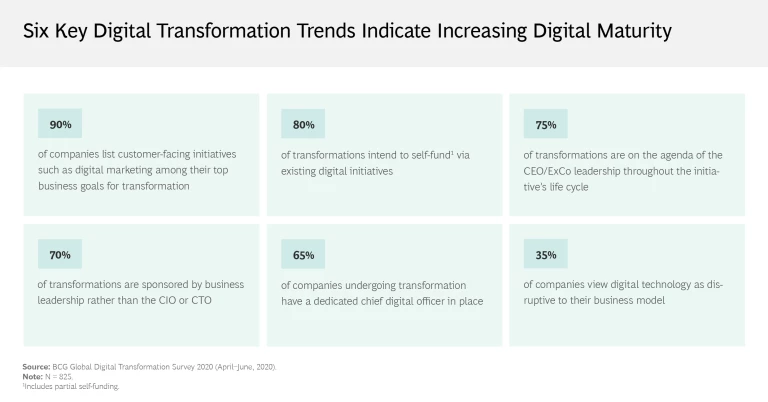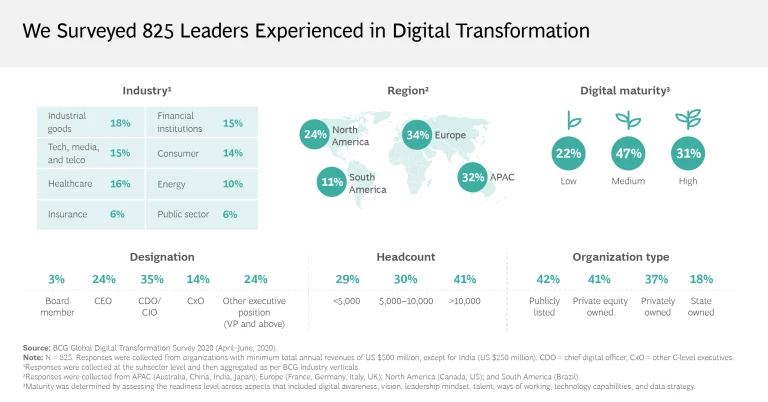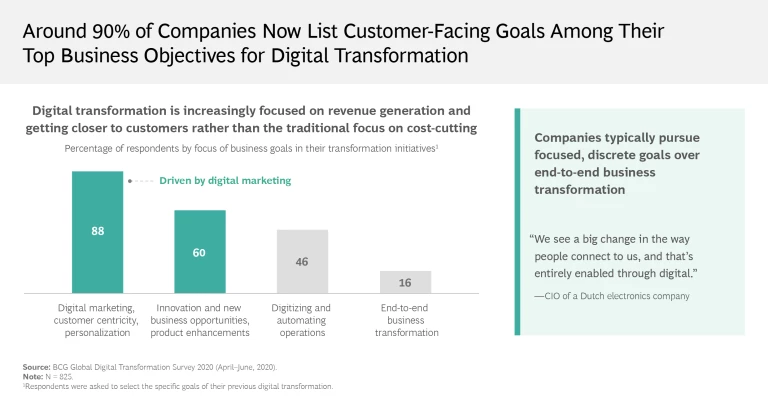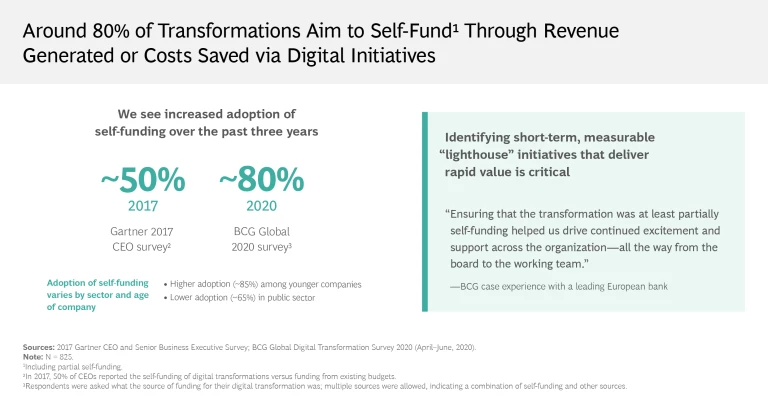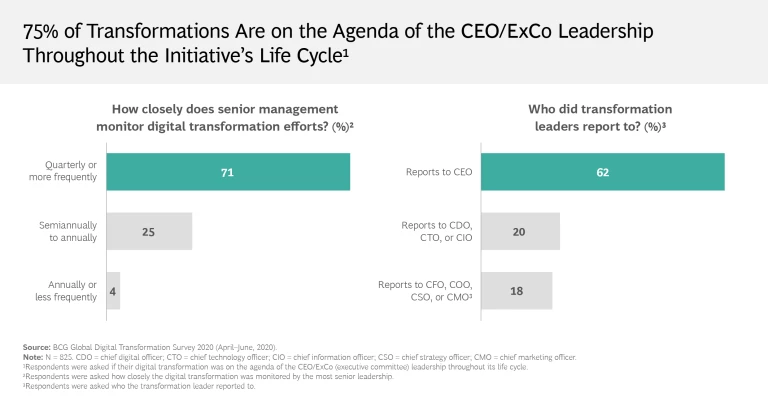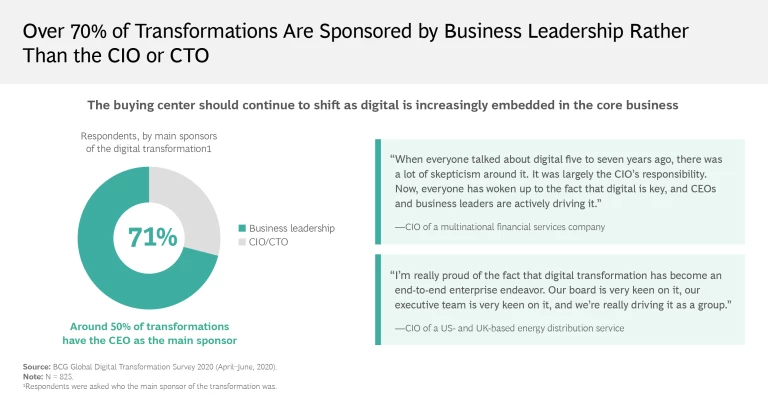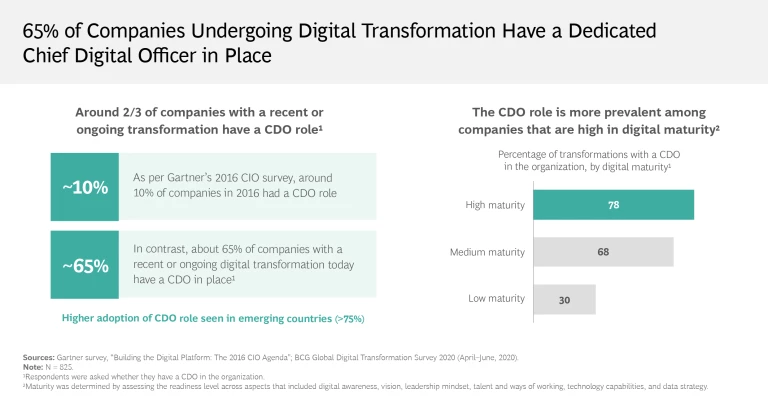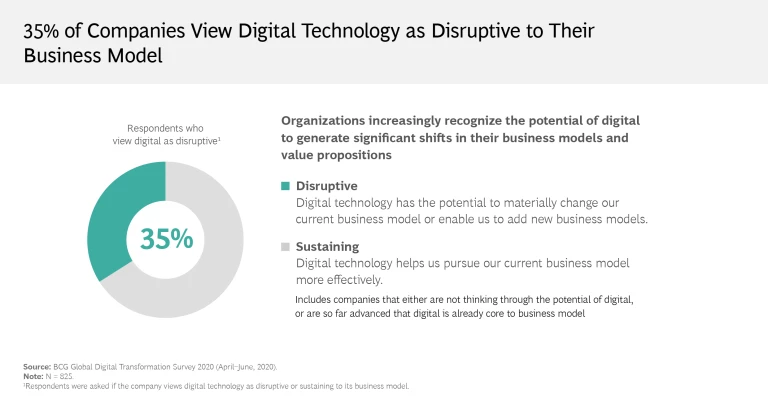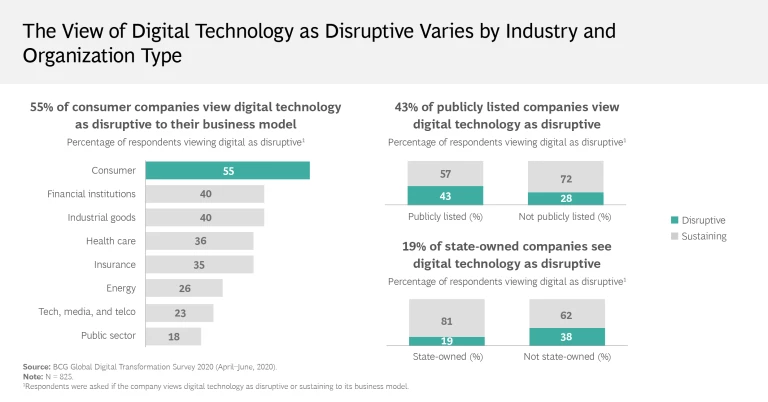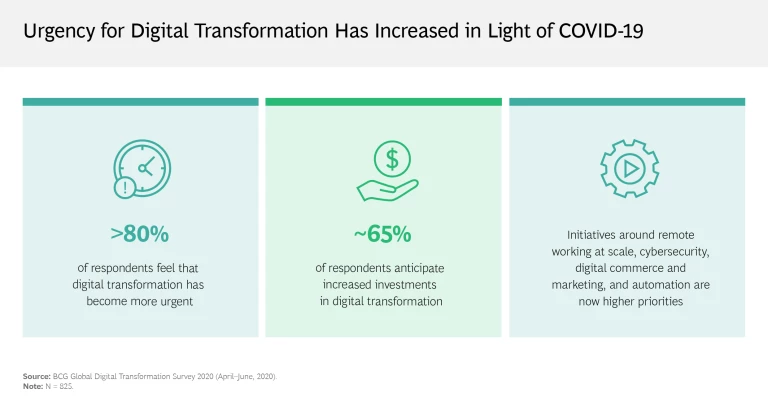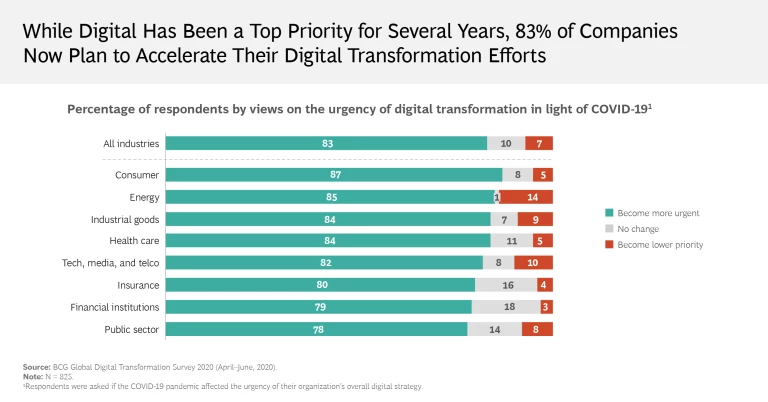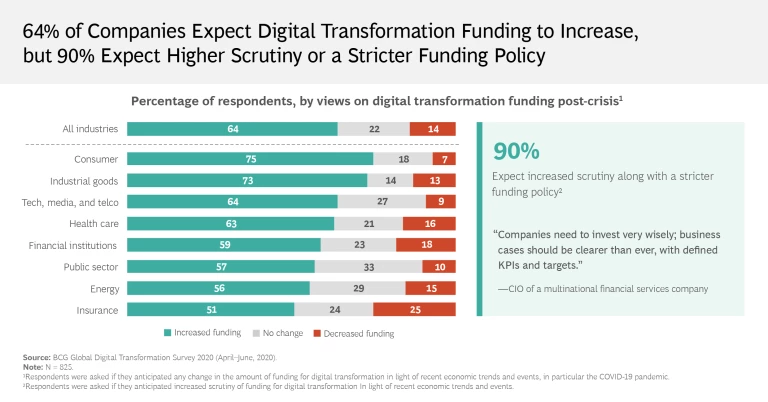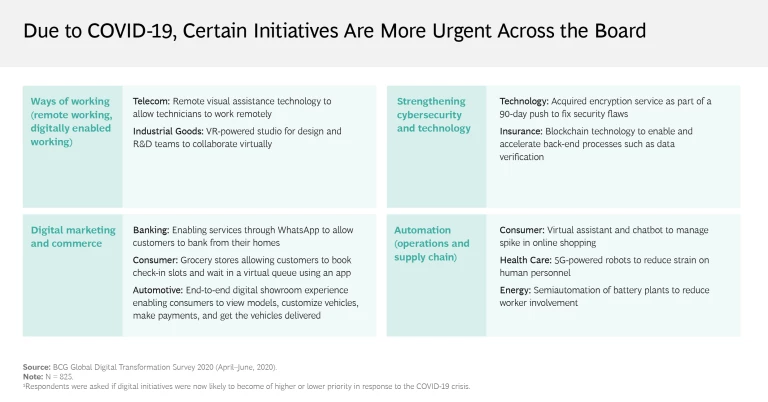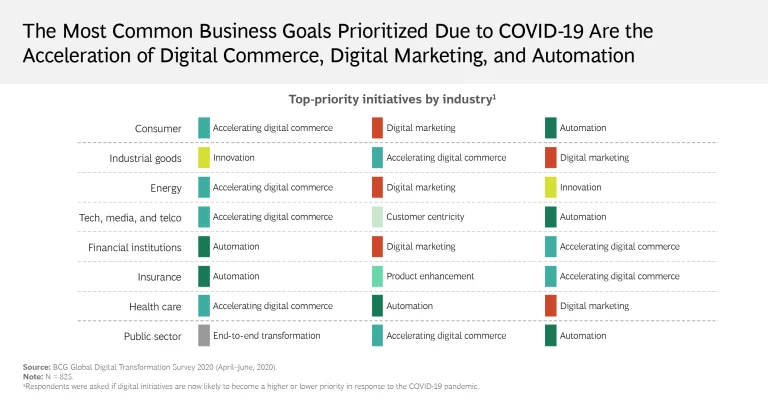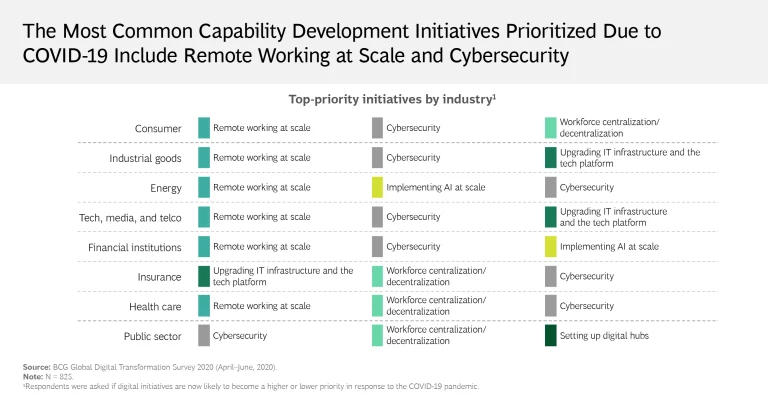As the COVID-19 pandemic continues, executives are finding their companies’ digital transformation more urgent than ever.
In late spring 2020, we surveyed senior executives, digital transformation leaders, and BCG experts about the leading trends in digital transformation and how these trends have been affected by the pandemic. (See the sidebar, “Our Research.”) While digital transformations have been a priority in recent years, over 80% of our respondents across industries now say they plan to accelerate their efforts. In addition, 65% expect to increase the amount they’re investing—despite the economic downturn—although they will subject those expenditures to greater scrutiny.
Our Research
Our qualitative research is based on a survey conducted in the spring of 2020. This included detailed profiling that allowed us to analyze the results by sector, country, company size, digital maturity, and other factors. The results comprise 825 survey responses from board members, CEOs, CxOs, and other executives across eight industry groups and four continents with digital transformation experience.
Our qualitative research derives from expert interviews with chief digital officers and digital transformation heads, along with more than 50 interviews with senior BCG leadership to collect learnings from BCG digital transformation case experiences.
Our respondents are also increasingly focused on specific, digitally enabled goals that will support their businesses’ recovery. These goals include the large-scale adoption of new ways of working, as their employees are working remotely—many for the first time; safeguarding their systems against cyber risk; honing their digital commerce and marketing capabilities; and, given the continued lockdowns and social distancing rules, increasing automation in operations and the supply chain.
Our survey also uncovered some powerful trends that began before the crisis. We found, for example, that where digital technologies were once primarily employed as cost-cutting tools, CEOs across industries now realize that digital has far more potential in the realm of revenues. Almost 90% of recent digital transformations have included customer-facing initiatives such as digital marketing , personalization, and streamlining the customer journey among their primary goals. This trend can be expected to grow as digital channels become more critical to business continuity.
We also found that decisions about digital technologies are increasingly embedded in the core of the business. Around 75% of executives say their transformation was on the agenda of the CEO or executive committee leadership throughout the initiative’s life cycle. And three-quarters of transformations in recent years have been sponsored by business leadership rather than the CIO or CTO, as was typically the case in the past. According to one of our survey respondents, this change has come about as CEOs and business leaders have recognized digital technology as a key driver of revenue.
COVID-19 has put businesses on a new and accelerated digital trajectory. We expect to see digital transformation becoming one of the most significant determinants of competitive advantage as the recovery continues.
This is the first in a set of reports on global digital transformation. In our next report, we will present the six key factors for successful transformation, taking a deep dive into each.


